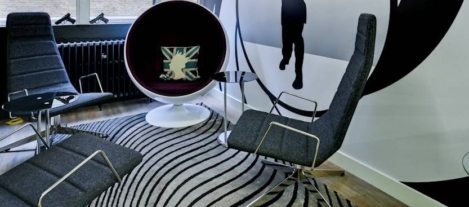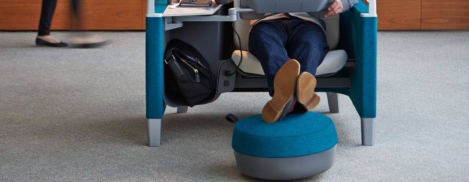January 25, 2016
Families struggle for work life balance despite changing gender roles 0
 A new report published today by the charity Working Families and nursery provider Bright Horizons suggests that parents are at greater risk of burn out as they strive for work life balance, with fathers at increasing risk as a result of their changing roles and expectations. The Modern Families Index is an annual study that explores how working families manage their work-life balance. This year’s report claims that nearly half (42 percent) of Generation Y fathers (born after 1980) feel burnt out most or all of the time, compared to just 22 percent of Gen Xers aged 36 to 45 and 17 percent of baby boomers aged over 45. The report claims that a growing number of fathers are now facing the same challenges and life choices most commonly ascribed to mothers. The study found that in half (49 percent) of the 1,000 couples surveyed, both parents were working full time. The figure rose to 78 percent for those in their twenties or thirties.
A new report published today by the charity Working Families and nursery provider Bright Horizons suggests that parents are at greater risk of burn out as they strive for work life balance, with fathers at increasing risk as a result of their changing roles and expectations. The Modern Families Index is an annual study that explores how working families manage their work-life balance. This year’s report claims that nearly half (42 percent) of Generation Y fathers (born after 1980) feel burnt out most or all of the time, compared to just 22 percent of Gen Xers aged 36 to 45 and 17 percent of baby boomers aged over 45. The report claims that a growing number of fathers are now facing the same challenges and life choices most commonly ascribed to mothers. The study found that in half (49 percent) of the 1,000 couples surveyed, both parents were working full time. The figure rose to 78 percent for those in their twenties or thirties.


















 A new meta analysis compiled by researchers from Harvard Business School and Stanford University raises questions about the way Government and organisational policies designed to tackle the problems of work related health costs in the United States have largely ignored the health effects of ‘psychosocial workplace stressors’ such as high job demands, economic insecurity, and long work hours. The analysis of 228 existing studies assessed the effects of ten workplace stressors on four specific health outcomes. The researchers claims that job insecurity increases the odds of reporting poor health by about 50 percent, high job demands raise the odds of having a diagnosed illness by 35 percent, and long work hours increase mortality by almost 20 percent. They argue that any policies designed to address these issues should account for the health effects of the workplace environment.
A new meta analysis compiled by researchers from Harvard Business School and Stanford University raises questions about the way Government and organisational policies designed to tackle the problems of work related health costs in the United States have largely ignored the health effects of ‘psychosocial workplace stressors’ such as high job demands, economic insecurity, and long work hours. The analysis of 228 existing studies assessed the effects of ten workplace stressors on four specific health outcomes. The researchers claims that job insecurity increases the odds of reporting poor health by about 50 percent, high job demands raise the odds of having a diagnosed illness by 35 percent, and long work hours increase mortality by almost 20 percent. They argue that any policies designed to address these issues should account for the health effects of the workplace environment.














January 14, 2016
The growing hysteria around employers’ ability to pry is not justified 0
by Mark Eltringham • Comment, Legal news, Technology, Workplace
More →